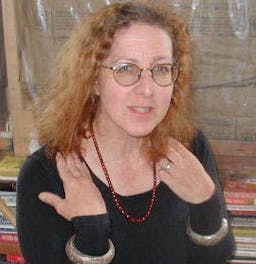burma's women dissidents in prison
Jan 21, 2015
Story
March 4, Inter Press Service
BURMA: Amid threats, women dissidents stick to political beliefs – Marwaan Macan-Markar
Bangkok – While Aung San Suu Kyi remains the most widely-known woman suppressed for her political views in Burma, the jails in that military-ruled country continue to be filled by lesser-known women dissidents being held on a range of questionable charges.
Mid-February saw the latest group of female political activists thrown into jail with a two-year prison term, including hard labour, for a \"crime\" they committed four months ago – donating religious literature to a Buddhist monastery, an act that the junta deemed as \"disturbing the peace.\"
At the time of their arrest in October 2009, Naw Ohn Hla, Myint Myint San, Cho Cho Lwin and Cho Cho Aye had also been conducting regular prayers at the landmark Shwedagon pagoda in Rangoon, the country’s former capital, to secure the release of opposition leader Suu Kyi, who has been under house arrest for over 14 of the last 20 years.
\"These women were very persistent with their religious activity no matter the risks they faced, any oppression,\" says Khin Ohmar, vice chairwoman of the Burmese Women’s Union (BWU), a network of democracy activists exiled in Thailand. \"It is a sign of their determination and political beliefs.\" \"Jailing female political activists is not going to silence them,\" she revealed in a telephone interview from Mae Sot, a town along the Thai-Burmese border. \"The military authorities keep repeatedly making this mistake.\"
The four women prisoners bring to nearly 190 the number of female activists among the estimated 2,200 political prisoners now in Burmese jails. The women who are paying a steep price for their political beliefs include Buddhists nuns, journalists, labour rights activists and members and sympathisers of the National League for Democracy (NLD), the party that Suu Kyi heads.
Nilar Thein, a former university student leader, is among them. She was condemned to a 65-year prison sentence in November 2008 for her prominent role in a peaceful protest movement in September 2007 that saw thousands of Buddhist monks come on the side of the oppressed and launch street protests.
Hla Hla Win was given a 20-year-prison sentence on Dec. 31 last year for her work as an \"undercover journalist\" who fed information from inside Burma, or Myanmar, as it is also known, to the Democratic Voice of Burma (DVB), an Oslo-based news organisation of exiled Burmese journalists.
Others such as the 54-year-old Cho Mar Htwe, who was released in September 2009 after languishing in jail for 11 years, was condemned for something more simpler – bringing to the NLD office a faxed letter from Japan that called for the release of Suu Kyi and all political prisoners.
The trauma of a long jail term has not dimmed Cho Mar Htwe’s commitment to remain politically engaged. \"Even though I have been in prison for 11 years, I want to be involved in politics,\" she said through a translator from Mae Sot, the Thai town she had fled to a month after being freed. \"Other female political activists I left behind feel this way. They want to make a change even if there is a threat of jail.\"
Women in the border areas of the South-east Asian nation, which are home to the country’s ethnic minority communities, have displayed a similar spirit and have paid a heavy price for it, revealed the global rights lobby Amnesty International (AI) in a recent report.
Buddhist nuns in western Rakhine State, a female activist protesting against the flawed May 2008 referendum to approve the new constitution in the eastern Karenni State and girls from the northern Kachin State accused of having informed the international media about being raped by Burmese soldiers are among the victims of repression, stated Amnesty in its February report.
\"A young Karenni woman told Amnesty International how she and her friends in the Kayan New Generation Youth group were arrested by the authorities for their peaceful anti-referendum activism on May 10 (2008),\" notes the 66-page report, entitled ‘The Repression of Ethnic Minority Activists in Myanmar’.
\"We documented accounts of women in these ethnic areas taking a leading role in political activity,\" says Benjamin Zawacki, the Burma researcher for AI. \"And there is evidence of these women activists being repressed for it.\"
A woman from the Kachin minority was arrested after she led a signature campaign against the construction of a dam in the Kachin State, Zawacki said in an interview. \"They (the junta) are not soft on women.\"
The prospect of more women going public with their political passions is expected to rise in Burma as the regime has promised a general election this year. It will be the first poll to be held since a 1990 vote that the opposition parties won with a huge mandate, but which the junta refused to recognise.
\"The level of political activism among women is on the rise,\" says Zawacki. \"Leadership among women is also increasing.\"
This emerging trend comes even as the women know that a jail term brings with it particular forms of abuse used against jailed female activists. \"Verbal and mental torture is the most common. The guards abuse us with bad words,\" 35-year-old Lae Lae, who served a four-year term as a political prisoner, told IPS. \"We are also not given our needs when we are menstruating and they humiliate us at such times.\"
Some women have indeed suffered worse during their menstrual cycle in Burmese jails, says Khin Ohmar of BWU. \"There have been cases of prison authorities forcing women to stand with their stretched legs apart and then kicking them in the abdomen.\"




